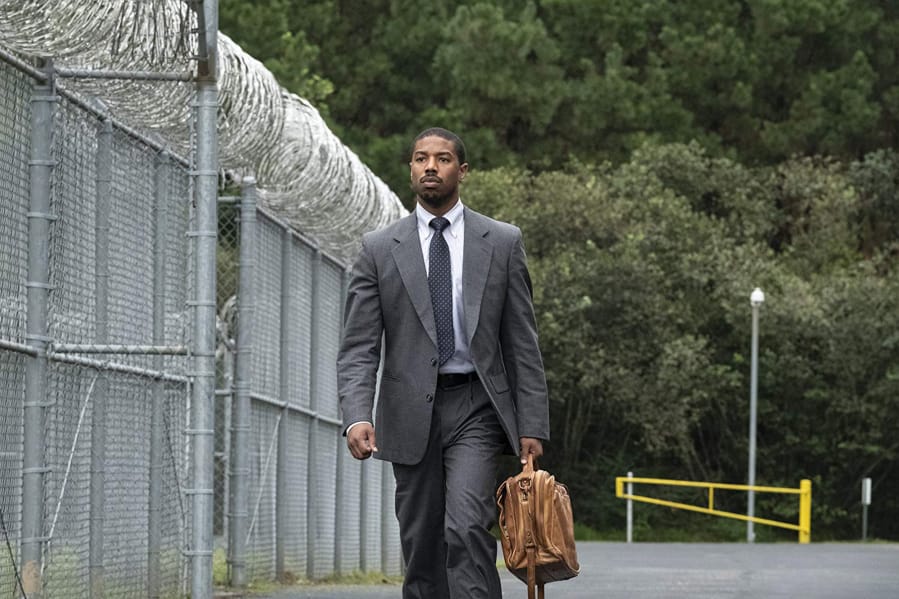“Just Mercy” is solid, meat-and-potatoes docudrama filmmaking, if you don’t mind a first-rate story of systemic injustice undercut by second-rate dialogue. No character can go two sentences without clarifying a legal point for the audience’s benefit, or reiterating a tidy, just-so note of stirring idealism. By the time the movie arrives at its courtroom climax, however, there’s an easy way to determine whether the film’s limitations are about to be overturned by its strengths: You do, in fact, hold your breath for a suspenseful, interminable 2.6-second interval before a judge’s final verdict. Call “Just Mercy” a split decision, or something like that.
The movie comes from a 2014 bestseller by civil rights activist Bryan Stephenson, co-founder of the Equal Justice Initiative and a passionate advocate for Death Row inmates railroaded, to varying and outrageous degrees, by the justice and incarceration industry. Like the memoir, the film focuses on Stephenson, played by Michael B. Jordan, who also served as a producer. He’s a Harvard-educated Delaware native who arrives in Georgia in the late 1980s. The story soon moves to Monroeville, Ala., best known as the real-life inspiration for native daughter Harper Lee’s classic “To Kill a Mockingbird.”
One case in particular leaps out of a crowded pack: the 1987 arrest, on murder charges, of Walter McMillian, an African American pulpwood business owner accused of killing an 18-year-old white woman. Soon enough, Stephenson realizes how faulty and selective the evidence against McMillian really was. The activist gradually convinces the prisoner’s family, and then McMillian himself, that he has a shot at redemption.
Jamie Foxx plays McMillian; in the script by director Destin Daniel Cretton (“Short Term 12”) and Andrew Lanham, he’s something of a supporting player in his own story, although in this fact-based story, and this movie, he’s not back-benched by a white savior figure. (Small favors.)



